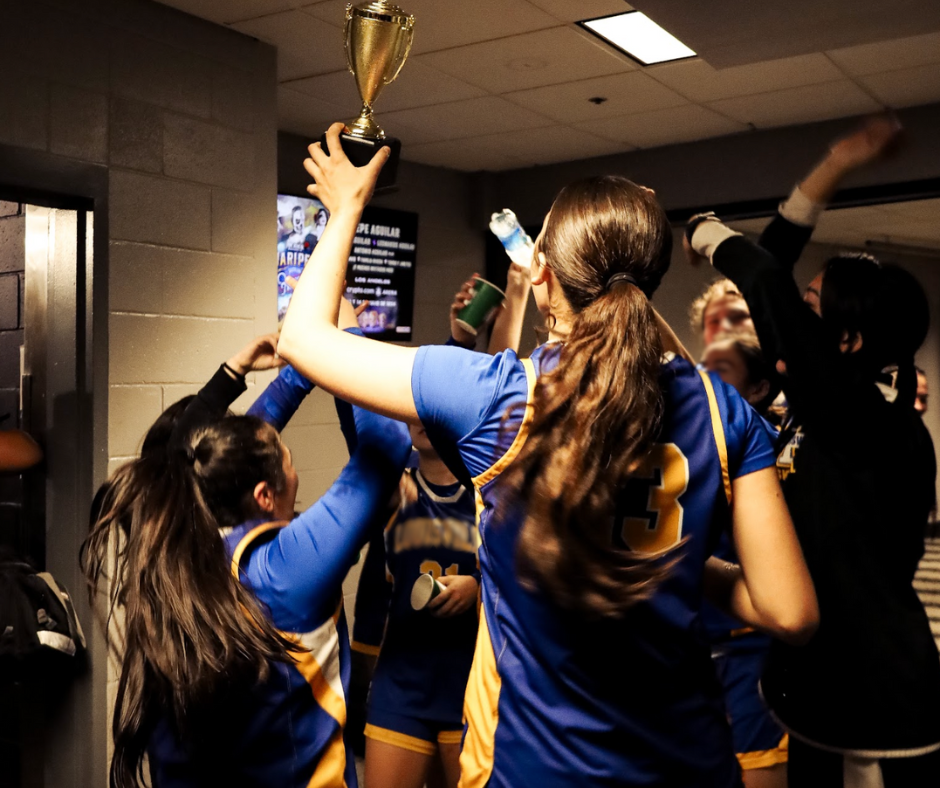Uncovering Hidden Potential
Uncovering Hidden Potential. In Adam Grant’s Hidden Potential. The Science of Achieving Greater Things Grant shares insights from the science of teamwork, success, motivation, and innovation. Grant is a renowned organizational psychologist. He’s also a multi-award-winning professor at the Wharton School at UPenn, a Harvard Graduate, a father of three, and the author of 6 NYTimes Best Sellers. His podcasts reach millions of people. Simply put, he’s smart and is phenomenally successful in helping people do life better.
In Hidden Potential, Grant shares the secret to individual and team success. Here are some key takeaways from his book.
‘Prosocial Skills’ Are The Key To Building A Successful Team
“Prosocial skills” enable individuals to interact positively with others in various social situations. These skills include things like empathy, communication, cooperation, and problem-solving.
Our 15 Favorite Youth Sports Ted Talks
It’s no surprise that people with prosocial skills are good teammates. But what is surprising is that Grant says it’s the most critical trait when building a great team—more important than skill level, intelligence, or leadership qualities.
Grant found that people with prosocial skills are the key to building a successful team because they are focused on others and helping others achieve. As team members, they bring out the best in everyone else. When team members are motivated to help others, they excel and boost team productivity and results. Research demonstrates that the best teams have the most players with high levels of prosocial skills.
My Daughter Quit Sports, and This Is What Youth Sports Parents Need To Know
Grant and his team examined the X (Twitter) feeds of NBA players. The more players on a team who tweeted about personal achievements and used boastful wording, the less successful that team was.
A Leader Typically Isn’t The Loudest Voice In The Room
Too often, the person who talks the most is put in leadership positions. Grant calls it the “babble effect”. This “undermines competence and rewards dominance rather than collaboration.”
To improve leadership within a team, he says we should focus on promoting individuals with prosocial skills who prioritize team cohesion over personal glory. Choose leaders who amplify and elevate other voices rather than silencing or shooting them down. Look for leaders who excel at listening and tap into the intelligence and ideas of the entire team.
Build The Scaffolding
Most athletes and teams require structure to sustain their motivation amid burnout, boredom, or lack of confidence. ‘Scaffolding’, often provided by coaches or parents, “helps us build the resistance to overcome obstacles that threaten to overwhelm us and limit our growth,” writes Grant.
One way to do this is to create teams that emphasize “Deliberate play,” making the practices more varied and fresh. For example, NBA star Steph Curry’s trainer has him play little made-up games. One he calls Twenty-One, where Curry gets one minute to score 21 points and sprints to mid-court after each shot.
Another type of scaffolding is teaching others. Research shows that teaching or explaining material boosts the person teaching almost as much as those learning. This can include involving the athletes in the daily decision-making of practices. Have them explain plays, call on someone to explain an offensive scheme, or ask the athletes their opinions on what went wrong in a game or drill and how to improve. Providing an open line of communication and dialogue with the athletes provides a rich learning environment during practices instead of just rote memorization.
The Power of Psychological Safety
A team’s success hinges on their psychological safety. Grant refers to Harvard professor Amy Edmondson’s theories. She describes it as a climate where individuals feel comfortable being candid, taking risks, and speaking up with ideas, questions, and concerns.
When team members know they won’t face negative consequences for voicing their thoughts, failing at something, or even making minor mistakes, they will play and compete at their highest level. They will form a connection and bond with their coach and teammates, which is the glue to any successful team.
Grant encourages open and honest communication to cultivate psychological safety within your team. Foster a climate that values every voice, even those with less status. Reward vulnerability and constructive feedback. As a leader, model inclusive behavior that makes everyone feel welcome and valued, whether the star player or the last player on the bench.
The Importance of Stepping Out of Your Comfort Zone
Grant says embracing continuous learning is the pathway to uncovering your true potential. “It’s not about where you start but how far you travel.” This journey often requires starting tasks before feeling fully ready and embracing discomfort as a catalyst for growth.
View challenges and setbacks not as failures but as opportunities to grow and learn. This mindset can help athletes persist through difficulties and view every experience as valuable.
Set ‘Learning’ Goals, Not Just ‘Performance’ Goals, emphasize skill development and learning rather than just performance metrics. This approach encourages a culture of continuous improvement and lifelong learning.
And finally, embrace a Spiral Approach to Progress. Understand that progress is often non-linear. Sometimes, you need to revisit and revise your strategies. This ’roundabout path to progress’ is a normal part of the journey towards achieving great things.
Find more from Adam Grant Here:
